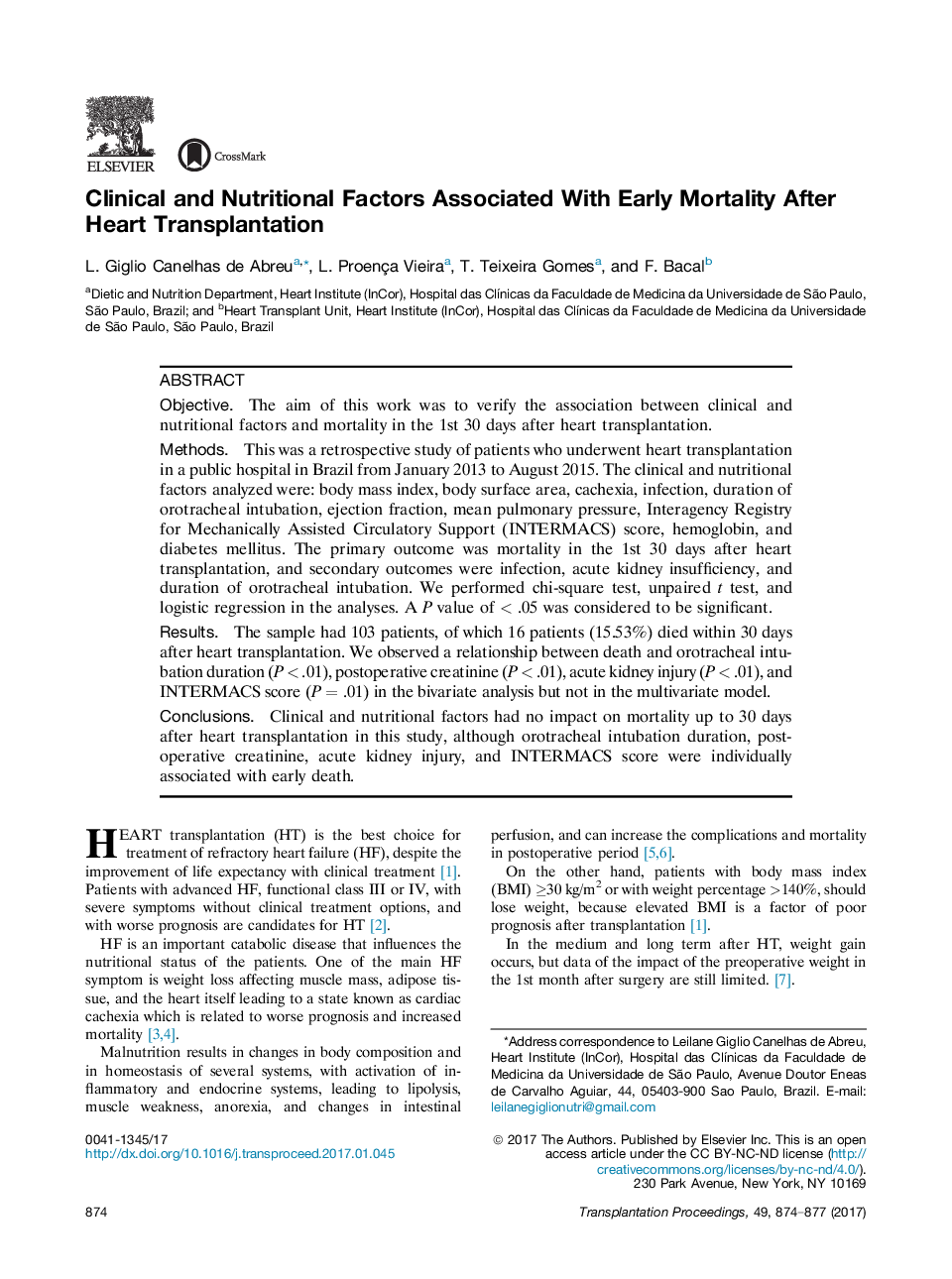| Article ID | Journal | Published Year | Pages | File Type |
|---|---|---|---|---|
| 5728954 | Transplantation Proceedings | 2017 | 4 Pages |
ObjectiveThe aim of this work was to verify the association between clinical and nutritional factors and mortality in the 1st 30 days after heart transplantation.MethodsThis was a retrospective study of patients who underwent heart transplantation in a public hospital in Brazil from January 2013 to August 2015. The clinical and nutritional factors analyzed were: body mass index, body surface area, cachexia, infection, duration of orotracheal intubation, ejection fraction, mean pulmonary pressure, Interagency Registry for Mechanically Assisted Circulatory Support (INTERMACS) score, hemoglobin, and diabetes mellitus. The primary outcome was mortality in the 1st 30 days after heart transplantation, and secondary outcomes were infection, acute kidney insufficiency, and duration of orotracheal intubation. We performed chi-square test, unpaired t test, and logistic regression in the analyses. A P value of < .05 was considered to be significant.ResultsThe sample had 103 patients, of which 16 patients (15.53%) died within 30 days after heart transplantation. We observed a relationship between death and orotracheal intubation duration (P < .01), postoperative creatinine (P < .01), acute kidney injury (P < .01), and INTERMACS score (P = .01) in the bivariate analysis but not in the multivariate model.ConclusionsClinical and nutritional factors had no impact on mortality up to 30 days after heart transplantation in this study, although orotracheal intubation duration, postoperative creatinine, acute kidney injury, and INTERMACS score were individually associated with early death.
